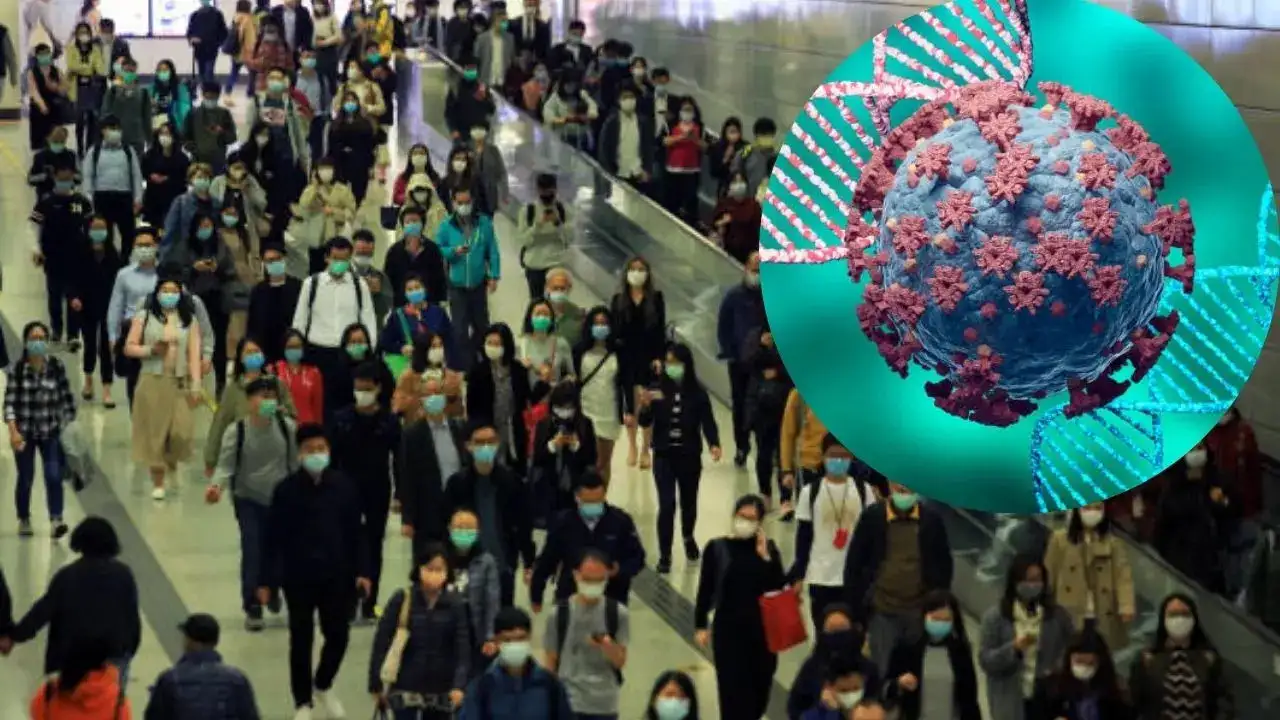
Number of cases of coronavirus signal a resurgence of COVI-19 infection across parts of Hong Kong and Singapore
Health authorities across densely populated Southeast Asia are worried as a new wave of COVID-19 infections is being predicted due to a spike in the number of cases. The surge has signalled a resurgence across parts of Hong Kong and Singapore, according to news reports.
Even in Thailand, the health department has reported two cluster outbreaks this year, with cases rising after April's annual Songkran festival, which brings together crowds.
Albert Au, head of Hong Kong’s Communicable Disease Branch of the city’s Center for Health Protection, said the virus’s activity in the city has reached a “quite high" level. He added that the percentage of respiratory samples testing positive for COVID-19 has hit a year-high. Data from the center reveals a concerning rise in severe cases, including deaths, reaching their highest point in approximately a year, with 31 reported in the week ending May 3.
Even though the present resurgence has yet to reach the peak infection levels of the past two years, indicators like spiking viral load in sewage water and a rise in Covid-related medical consultations and hospitalisations suggest active community spread within the city, which houses more than 7 million people of various nationalities.
Many prominent citizens, like popular singer Eason Chan, cancelled their upcoming concerts, originally scheduled for later this week, after contracting the coronavirus, according to a post on the concert’s official Weibo account.
Singapore is on high alert
According to reports, Singapore’s health ministry issued its first update on infection numbers in almost a year earlier this month, revealing a significant 28 percent jump in estimated cases to 14,200 in the week ending May 3.
Experts have raised worries over a 30 per cent spike in daily hospitalisations as well. While factors like waning population immunity can also be a contributing factor to the increase, Singapore’s health ministry stated that there is currently “no indication that the circulating variants are more transmissible — or cause more severe cases — than during the pandemic."
What could be causing the spike in COVID-19 numbers?
According to experts, waning population immunity can be one of the reasons why cases may be rising, since there is no other indication that the circulating variants are more transmissible.
There have also been reports of waves of the now-endemic disease swelling periodically, with officials constantly calling on people to keep their vaccinations updated, most specifically high-risk individuals like children, the elderly, and those with underlying health conditions.
According to the Centers for Disease Control and Prevention, COVID-19 numbers spike mostly during the summer season, with the test positivity rates more than doubling among patients who seek a diagnosis at hospitals.
